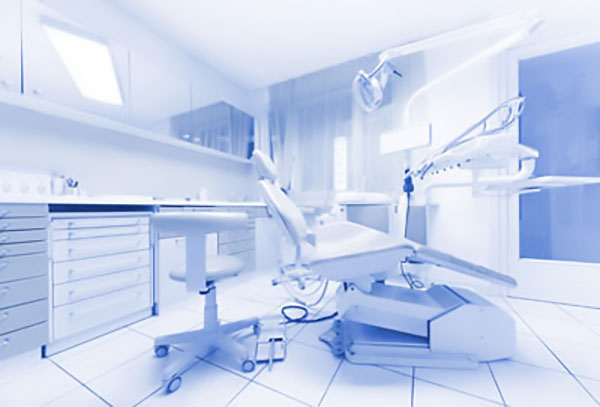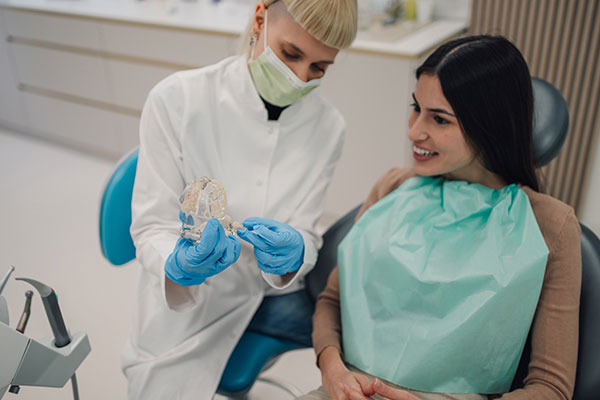What Are the Most Common Uses for Laser Dentistry?

Laser dentistry has been around for almost three decades and it can be used to treat a variety of dental problems, such as discolored teeth and gum disease. Lasers provide a higher level of precision than traditional dental tools, and treatments performed with them are less likely to lead to pain and discomfort.
Popular uses of laser dentistry
A laser is a concentrated beam of light energy. The wavelengths of a laser can be adjusted to alter the way it interacts with different types of tissues. As a result, some types of lasers work better on soft tissues, while others work better on hard tissues like bones and teeth.
The light generated by a laser generates heat and a dentist can use it to shape or remove soft and hard tissues in the mouth. Procedures that can be performed using lasers include:
- Cutting off tissues from an impacted wisdom tooth
- Reshaping overgrown gum tissues
- Reshaping and removing gum and bone tissues during crown lengthening
- Removing swollen gum tissues
- Cutting away muscles that restrict the movement of the lips and tongue
- Speeding up teeth whitening treatments
- Alleviating the discomfort caused by cankers and cold sores
- Removing portions of enamel in preparation for restorations
- Roughening teeth surfaces in preparation for composite bonding
Benefits of laser dentistry
Treatments with lasers often provide patients with certain benefits, like:
- Lasers reduce the need for anesthetics
- Lasers can replace the need for noisy drills
- Lasers typically lead to less bleeding than conventional dental tools
- Lasers help to minimize pain and discomfort
- Incisions typically heal faster when made with lasers
- Lasers sterilize the areas being worked on, reducing the risk of infection
Lasers make it easier to treat periodontal disease
Periodontal disease is an infection of the gums and supporting tissues that keep teeth in place. It typically affects people in their 30s and 40s, and it can be caused by a variety of factors like chronic illnesses, smoking, genetics and poor oral health.
The standard treatment for periodontal disease involves cleaning the surfaces of the patient's teeth and their roots. The procedure is called scaling and root planing. It can take a few weeks to recover from.
Lasers simplify this process by reducing the irritation to gum tissues during the treatment. Instead of using metal hand tools to scrape off tartar and bacteria from the patient's tooth roots, the dentist uses a laser to kill bacteria and infected tissues in gum pockets. The use of laser stimulates stem cells, promoting faster healing.
Using a laser to treat gum disease instead of traditional dental tools provides benefits like:
- Less bleeding after root scaling and planing
- The wavelength of the laser can be optimized for each patient
- Recovery after deep cleaning or scaling and planing is shorter
- It provides a less invasive way to treat gum disease
- It preserves the healthy parts of affected teeth
- It reduces the need for surgical treatments like flap surgery
Explore laser dentistry
Call our Chester clinic to learn more about how lasers provide less invasive treatments for gum disease.
Request an appointment here: https://thechesterfielddentist.com or call Chesterfield Dentist at (804) 412-0867 for an appointment in our Chester office.
Check out what others are saying about our services on Yelp: Read our Yelp reviews.
Recent Posts
As a child’s mouth and teeth develop into adolescence, it may become apparent that there are problems with alignment or spacing. Invisalign® for teens presents an alternative to traditional metal braces but without sacrificing the quality of results of corrective treatment. The specifics of a teen’s condition may impact the eligibility of this alignment option,…
Gum disease is a common yet serious oral health issue that can cause discomfort, damage, and even tooth loss if left untreated. With the right gum disease treatment, patients can not only stop the infection in its tracks but also restore the patient's overall oral health. Knowing the true impact of gum disease and how…
A popular way to straighten teeth without traditional braces is Invisalign®. Clear aligners are available for both adults and teenagers who are interested in improving the alignment of their teeth and improving the appearance of their smiles. The aligners are not visible in the mouth and do not have metal components that can irritate sensitive…
If you are a teenager whose dentist recommends Invisalign to straighten your teeth, you may wonder what the product is. Many dentists advise Invisalign® for teens as a discreet and reliable method of treating crooked teeth. However, you may only be familiar with traditional braces. Invisalign is a different way to fix malocclusions or imperfect…


